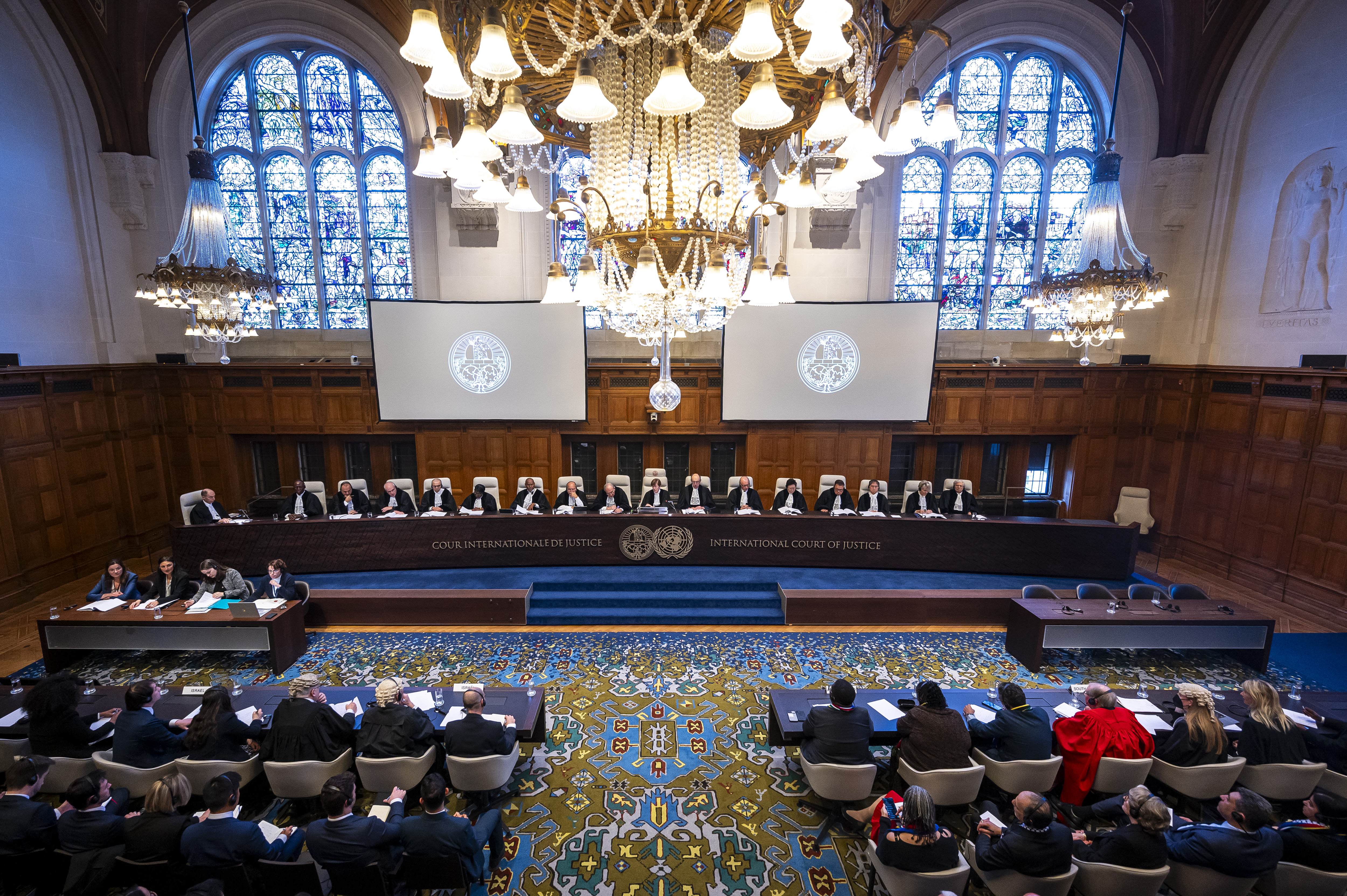On the Delicate Balance of the ICJ Decision on Temporary Measures
While neither Israel nor South Africa achieved a complete win, one thing is clear: the story of Israel before the ICJ is only beginning

Photo: Courtesy of the ICJ.
The South African lawsuit against Israel at The Hague on December 29, 2023, appears to have had two central political objectives. Firstly, to leverage legal proceedings to advance international efforts to compel Israel to cease hostilities in Gaza before achieving its war goals. Secondly, to advance, through the International Court of Justice (ICJ) proceedings, international delegitimization efforts against Israel by accusing Israel of the most egregious breach of international law – genocide. In light of these particular objectives, the ICJ decision on January 26, 2024, to issue interim measures may not be a significant success for South Africa, and Israel can, indeed, find some relief in the ruling. However, this is just the beginning of an extended legal and geopolitical saga, with legal dimensions of course, but also political and military dimensions as well.
South Africa sought nine different measures from the ICJ – two requiring Israel to end the war, three aimed at preventing actions related to the alleged genocide (including one specifying that Israel should revoke the directive to residents of northern Gaza to leave the area), one regarding incitement to genocide and related offenses, one on preserving evidence for violations of the law, one on periodic reporting to the court about implementation of the measures, and one general remedy concerning avoiding the aggravation of the situation. The Court only partially granted these requests. It refrained from instructing Israel to implement a ceasefire or end the war or adopt any specific military or humanitarian measures. The Court also accepted part of South Africa's request for reporting on the implementation of the Court's orders, opting for a single report within a month instead of the requested multiple reporting starting within a week from the decision.
The bottom line is that the Court did not direct Israel to take any action that it is not already obligated to take under international law. Crucially, it did not instruct Israel to take action that it does not claim to be already implementing today, such as cooperation with humanitarian efforts and launching legal proceedings against incitement offenses. Israel’s concern that the ICJ would order a ceasefire or the adoption of specific measures with the potential to impose significant operational complications—such as the return of displaced residents to the north—did not materialize.
However, the very issuance of interim measures is still a small victory for South Africa, as it involves a rejection by the Court of Israel's position that the entire claim lacks merit. Only two judges, Judge Julia Sebutinde of Uganda and Judge Aharon Barak from Israel, dissented. The Court carefully worded its decision in this regard, indicating that South Africa’s claim is not implausible, through emphasizing that this is an early stage in the process where the burden of proof required is minimal. The decision does not signify a legal determination that Israel has violated any international law, and it did not even establish that all of South Africa's legal claims are not baseless. Instead, the Court acknowledged that there are indications that Israel could be violating some provisions of the Genocide Convention, providing some wind in the sails of efforts to delegitimize Israel and its military operations in Gaza.
The obligation imposed on Israel to report to the Court within a month on the implementation of the interim measures should also concern Israeli decision-makers. This decision implies that the Court reserves to itself the right to monitor the situation in Gaza closely and to intervene again if Israel does not demonstrate that it is taking concrete steps, such as preventing a humanitarian collapse in the Gaza Strip and effectively addressing incitement-related statements. It can be assumed that South Africa might use the reporting process to file requests with the Court to adjust the temporary measures according to developments on the ground, as seen in a previous case involving a dispute between Armenia and Azerbaijan. Hence, even though South Africa failed to achieve the main objective of using the proceedings to stop the war, the legal risks to Israel remain, and will continue for many years to come, as long as the case is pending before the Court.
Finally, the decision increases the likelihood that Israel's allies, who do not want to be associated with policies that may not fully align with the Genocide Convention, will exert growing pressure to conduct the war in a manner that minimizes civilian casualties and seek an end to the conflict, possibly through diplomatic means such as UN resolutions, or even arms sales restrictions. For better or worse, this story is only beginning to unfold.
